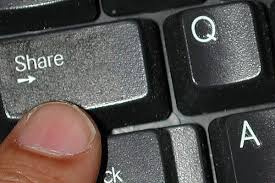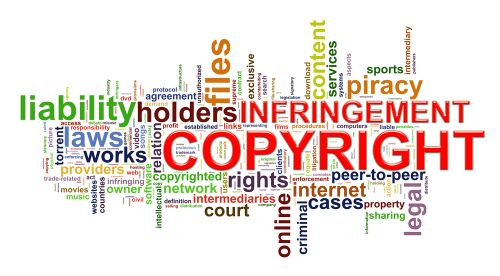A Brief History of Piracy
We have an interesting perspective, having been born in the early 80’s when the personal computer industry was just starting to bloom and grown up in the 90’s and 2000’s when piracy began to become widespread among computer users. Before then, though, people would still pirate software and music alike.
Software has always been a common target for piracy, and before it was available online in such easily accessed forms as torrents or even just as downloadable files via email or web browser, it was available on BBSes as far back as the 1980’s. The reason that most people were not aware of this at the time was that access to the required technology and skill to use it was not very commonplace. As BBSes gave way to more user friendly software like AOL and eventually to the World Wide Web that we know today, more advanced computing power, faster internet speeds and more robust storage made it as easy as a few mouse clicks to pirate software as well as helping to distribute it to others.
(Listen in to the Retrospectical Podcast Episode 08: Online Piracy: Is Illegal File Sharing Stealing?)
Music has a similar story: people began copying vinyl records (although the process was far from perf ect at the time) back in the 60’s, but really started gaining steam with the invention of the cassette tape. The issue there, though, was that the audio quality would degrade every time an additional copy was made. Still better than nothing, right? Soon after, CDs came out and with the advent of CD-burning technology, you could finally copy audio quickly, and with the same quality. At this point we also had digital rips from CDs to various audio formats that ranged in quality. It almost seemed like a step down since people were distributing music that sounded more similar to cassette tapes than a high quality audio source. Again, as compression algorithms were improved and the speed and power of computers and the internet increased, we’ve now gotten to the point where very high quality audio (as well as video including television and movies) are almost immediately available.
ect at the time) back in the 60’s, but really started gaining steam with the invention of the cassette tape. The issue there, though, was that the audio quality would degrade every time an additional copy was made. Still better than nothing, right? Soon after, CDs came out and with the advent of CD-burning technology, you could finally copy audio quickly, and with the same quality. At this point we also had digital rips from CDs to various audio formats that ranged in quality. It almost seemed like a step down since people were distributing music that sounded more similar to cassette tapes than a high quality audio source. Again, as compression algorithms were improved and the speed and power of computers and the internet increased, we’ve now gotten to the point where very high quality audio (as well as video including television and movies) are almost immediately available.
Peer-to-Peer
- In quite a few cases in the 90’s and 2000’s, people who had downloaded illegal files were sued by specific organizations: the RIAA or MPAA, for example. You hear less and less about this now because people are downloading in ways that are more difficult to track. By decentralizing the way that these files are distributed, applications like Napster (originally) and now BitTorrent and its siblings can make it much for difficult for people to be traced to their actions.
- Although we don’t hear much about lawsuits these days, ISPs are still keeping fairly good track of what you’re doing out there on the web and will often send copyright infringement notices via email or snail mail that let you know they have eyes on your activities online. At some point in the future, these same ISPs could cut off internet access for those people who are infringing their terms of service by participating in such activities.
Is File Sharing Stealing?
- Let’s assume that all people who are using illegal file sharing are not just thieves. Why would someone who wouldn’t steal a physical item feel comfortable stealing something digital? What is the moral/ethical difference between those two things?
-  Wouldn’t stealing mean that one party has taken something from another party, meaning that the original person no longer has the item in question? Downloading a file from the internet does not actually remove it from the possession of someone else. Of course, the internet is not a tangible thing either; could it be shown that the item being stolen in some cases is actually a piece of the original party’s livelihood?
Wouldn’t stealing mean that one party has taken something from another party, meaning that the original person no longer has the item in question? Downloading a file from the internet does not actually remove it from the possession of someone else. Of course, the internet is not a tangible thing either; could it be shown that the item being stolen in some cases is actually a piece of the original party’s livelihood?
- A common argument is that downloading something to ‘try it out’ or that you would never have purchased otherwise isn’t ethically wrong. Is there any truth to this? What if a person finds that they really do like or use something that they had downloaded illegally? They should then purchase the item in question, right?
- In general, music, software and other media like television shows and/or movies are not really being sold – that is, if you purchase them you don’t own them outright, but rather a license to use them. It’s redistributing them that is illegal according to the agreement. Is there any way around this line of thinking to someone that ‘steals’ that intellectual property?
- These days there are many places from which you can play music, or watch TV and the IP owners still get a piece (however small) of the pie. Spotify, Pandora, YouTube, Hulu, etc are all places where you can consume media for free while still supporting their creators. If this is the case, why are so many people still downloading files illegally?
What About The Little Guy?
- It’s true that if I pirate a copy of a big budget movie, that will not affect in any substantial way the profits that the movie will make, or how many sequels will come from its success. But what about the little producers? For them, the margin involved when people are not paying for the product that they are producing is in some cases too large to ignore.
Interesting Facts about Online Piracy


